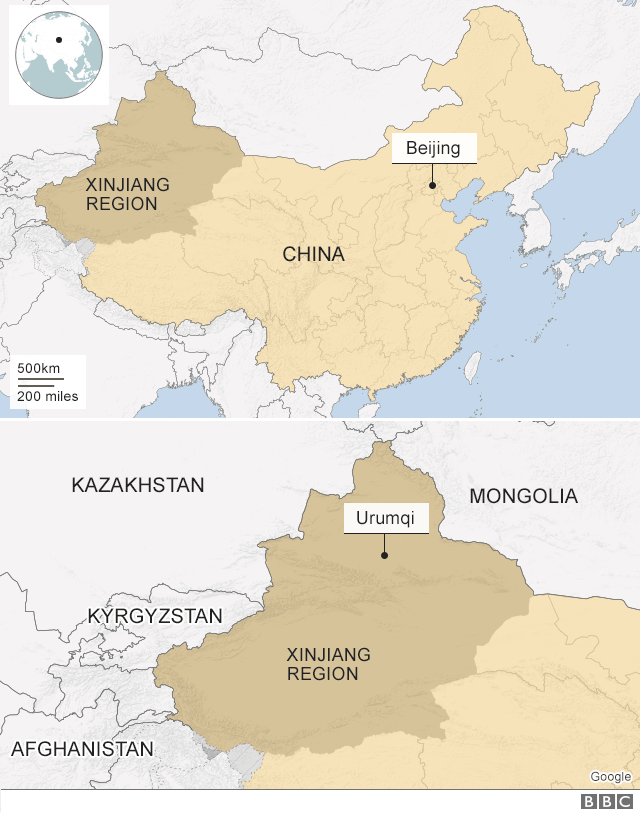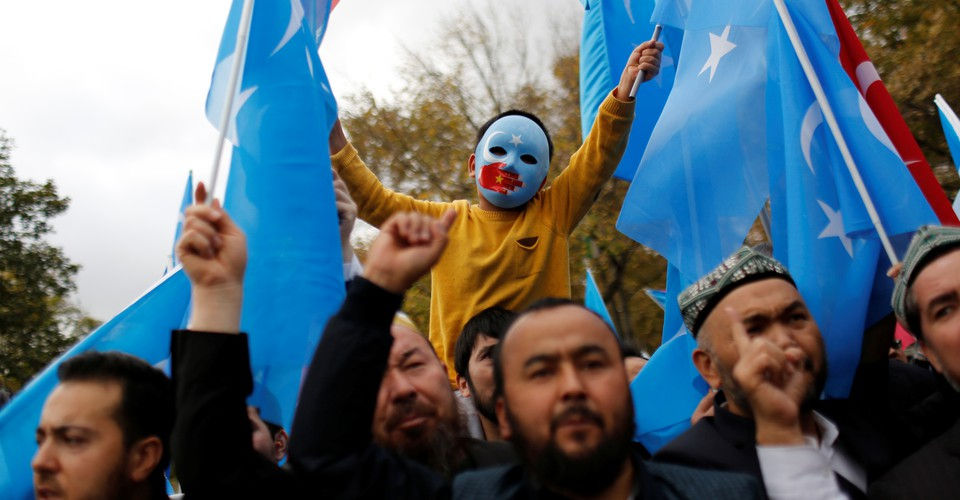The Uighurs: Understanding China’s Secretive Camps
- Mia Burke
- Dec 2, 2020
- 4 min read
An Overview
It is believed that around 1 million Uighurs (about 1 in 6 of the Uighur adult population) have been detained over the past few years into concentration camps by the Chinese government. Xinjiang, a region in Northwest China, supposedly has over 85 different camps that were created between 2017 and 2018. It’s regarded as an autonomous region which means that (in theory) it has some form of self governance from Beijing, similar to Tibet. In actuality, both Tibet and Xinjiang endure major restrictions carried out by the central government.

Xinjiang is economically important to China due to its abundance of natural resources such as copper, oil, and natural gas. Xinjiang is known to be China’s largest producer of natural gas. With this, it’s deemed essential to China’s Belt and Road Initiative. According to PBS, it’s the “most expensive infrastructure project in history”. It is also politically significant to China because, when the area was independent from 1940-1949, there were bursts of terrorism and violence in both China and Xinjiang. These clashes were supposedly from “Uighur extremists” thus creating a level of distrust with China.
Who are the Uighurs?
It’s estimated that there are about 11 million Uighurs in Xinjiang. According to the BBC, “They [Uighurs] see themselves as culturally and ethnically close to Central Asian nations, and their language is similar to Turkish. But in recent decades, there's been a mass migration of Han Chinese (China's ethnic majority) to Xinjiang, and the Uighurs feel their culture and livelihoods are under threat”. Uighurs are essentially Muslim Turkic ethnicity; they have their own language, Uighur, but China has been accused of forcing this group to learn Mandarin in the concentration camps. Although China resumed their control over Xinjiang in 1949, many Uighurs continue to identify with East Turkestan, the previous name to their homeland.

Why are they Targeted?
China believes that Uighurs hold extremist beliefs and have violent tendencies. These claims mostly originate from 2013 and 2014 when attacks took place (Uighur militants claimed responsibility for these). Following this, in 2017, the Xinjiang government passed a very restrictive law banning men from growing long beards and prohibited women from wearing veils.
Uighur Violence
China says it's supposedly dealing with a threat from “separatist Islamist groups”, and while there are Uighur Muslims that have joined this Islamic State militant group, most rights groups state that violence in Xinjiang originates from the Chinese oppression of the people. BBC indicates that, “In 2009, riots in the regional capital Urumqi killed at least 200 people, mostly Han Chinese. Since then, there have been a number of attacks, including one on a police station and government offices in July 2014 that killed at least 96 people”.
What’s Happening in the Camps?
It’s pretty hard to know exactly what’s happening in these camps because, well, it’s China. The Chinese government has repeatedly claimed these “vocational training centers” are not forcing people into them. It is important to note that this is the largest mass internment since WWII. According to PBS, “Members of the Muslim minority say they were detained, interrogated, and beaten becasue of their religion. Many say it is clear--they were not interned, not “re-educated”. The Guardian states, “they [Uighurs] undergo political indoctrination”.

What does this include? It can mean:
-Having to sit for hours and listen to speeches by Xi Jinping
-Listening to lectures about the communist party
-Singing patriotic songs
Many “ex-students” have accounted for torture such as electrocution along with forced medication and sterilization.
The Global Response
In July, a letter was sent to the U.N. Human Rights Council and was signed by 22 countries, excluding the United States. Conversely, 4 days after this letter was received, 37 countries came out and defended China (PBS). Recently, the United States stood in solidarity with the Uighars by denouncing China at the U.N. General Assembly. Although there remains many global accusations, there hasn’t been any major actions, besides the letters, that have been taken by other countries. Copious amounts of people across the globe have been wondering if this is actually a genocide taking place. According to BBC, “Asked whether the treatment of the Uighurs met the legal definition of genocide, UK Foreign Secretary Dominic Raab said the international community had to be ‘careful’ before making such claims”. On the other hand, in 2018, a UN human rights committee agreed that there are very reliable reports of “China was holding a million Uighurs in political ‘counter-extremism’ camps. Many human rights charities like Amnesty International and HRW have accused Beijing of ‘mass imprisonment and torture’. These charities claim most inmates have never committed a crime nor have received proper legal representation.
China’s Response
Initially, China denied the entire existence of these camps. Later on, they then claimed these camps were necessary and were simply being used as “re-education camps” in order to prevent Uighur violence. China also continues to plead that the world does not understand the situation in Xinjiang. Along with this, China has also denied accusations of the sterilization of Uighur women. Among this lengthy list of claims, China also has dismissed accusations of “ethnic cleansing”. Here is a video of China’s ambassador, Liu Xiamong, denying the concentration camps.
Something to Consider
If you plan on discussing this topic at your dinner table I highly recommend you figure out the correct pronunciation of Uighur! Sounds like ‘Wee-gr’
Still Need More Information?
Check out these videos:
Sources

Comentários